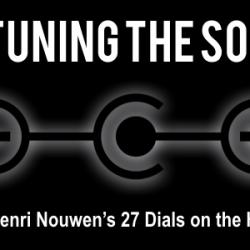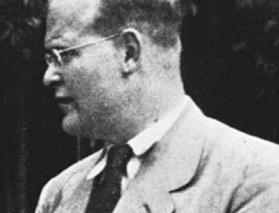 I read a great post this morning from my friend Jovan Brown on his blog Toward Fatherhood. Jovan is talking about why he finds modern worship music to be less significant as he enters into the way of descent. He’s finding most of those songs are really designed for the way of ascent, or the first half of life. Here’s an excerpt:
I read a great post this morning from my friend Jovan Brown on his blog Toward Fatherhood. Jovan is talking about why he finds modern worship music to be less significant as he enters into the way of descent. He’s finding most of those songs are really designed for the way of ascent, or the first half of life. Here’s an excerpt:
Eldredge calls it the Cowboy phase. Rohr calls it the Heroic Journey. It’s the young age of missions trips to poor, mountain villages. It’s the time of stern declarations of right and wrong, of individualization, of iconoclasm. Rohr points out the “necessary egocentrism” of this very important stage of development. “Not in love with God,” he writes, “but in love with the idea of being in love.” I spent my time in that phase. It was amazing and life-affirming. I hoped it would never end. But a grain of wheat cannot live in one season forever.
This is why I have such a hard time connecting with a lot of modern worship. The songs (like many sermons) are in love with the idea of being in love, but their lyrics still reflect the shallow, untempered optimism of youth. They demand that heaven come down, Jesus come into the room, or all creation dance and/or bow (though no one usually does). They declare the power of Jesus name over evils and ailments and all feelings of loneliness. But those clouds look a lot less fluffy once you’ve fallen through a few. Dating Jesus is a younger man’s game. The music is great, but for me, right now, it’s mostly past tense.
So please don’t be offended if I remain seated through your modern worship set, skip tracks on Crowder’s new album, or sigh, “What does that even mean?” halfway through a Watermark offering. I do not disdain the music; in fact, I marvel at all who have the music in them, who create it not because they can, but because they must.
But such anthems no longer belong to me, nor I to them. I’d love to hear a maturing voice of Christianity when I turn on K-Love. Until then, I’ll be at home listening to Nouwen and Manning and Lamott sing their silent songs of not knowing, and of being ok with not knowing, and of learning to be loved, and hopefully loving someone else somewhere along the way, maybe.
Because it’s 10:58 again, and I am sitting down.
I don’t want to small talk with friends or full-body hug my bros until I feel people starting to stare. I’m lucky to have made it to church at all, and I’ve come craving rest.
I’ve come to rest from the weary work of growing up.
I’m outgrowing modern worship.
And thank God for that.
I think this is an interesting analogy, or observation. It leaves me wondering if there is some sort of 2nd naïveté on the other side of these beginning stages of the second have of life. Will the innocence return later on? Is there a decade or two during which it all sounds immature, and then a blissful return to innocence that allows us to engage in the songs again, but mean them in a new way? I hope so, and I sometimes think I’m feeling that innocence again, especially with certain kinds of simple – almost trite – worship songs. I know it’s not all of the time, but there are moments when a really simple thought (You love me, oh how you love me), will absolutely reduce me to tears and I’ll be thinking, “Where did that come from? I don’t even like this song!”
I also like that he notes that he has a hard time connecting with a lot of modern worship, not all of it, because there are some writers and some songs that are, simply put, rich. There are still songwriters who are tapping into the deeper well – I’m thinking of Gungor and All Sons and Daughters, among others.
Good post Jovan; it is speaking to me as I prepare for worship this morning!












